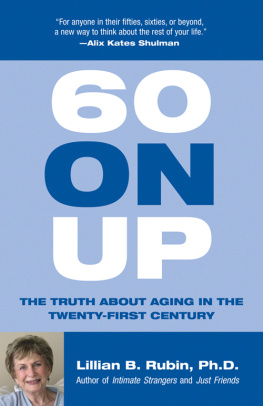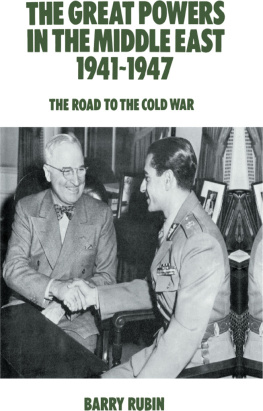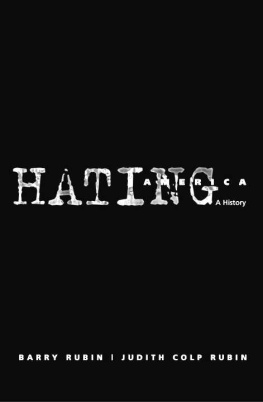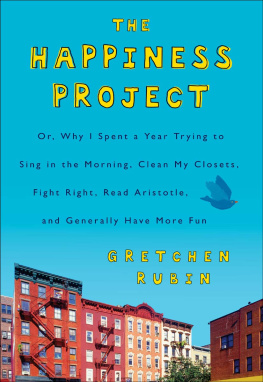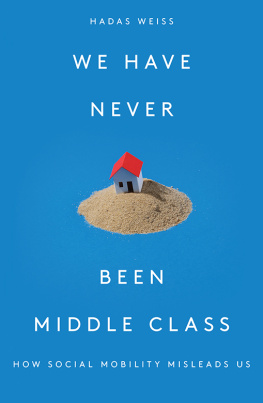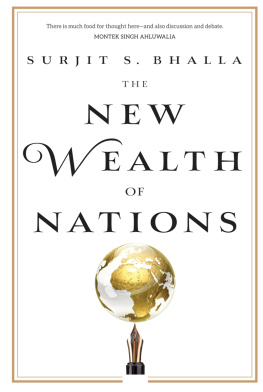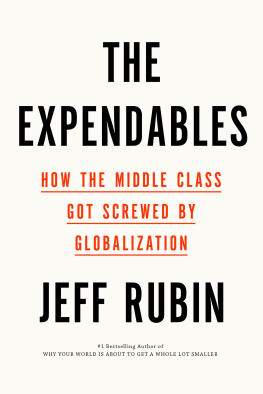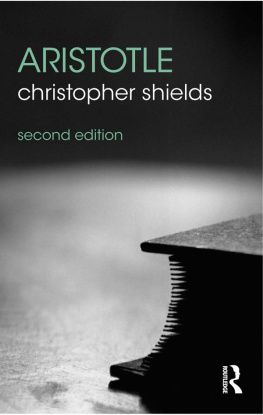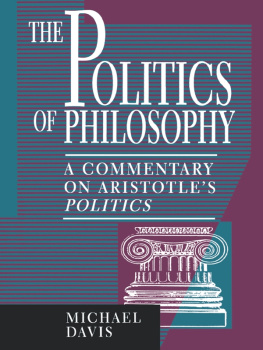America, Aristotle, and the Politics of a Middle Class
Leslie G. Rubin
Baylor University Press
2018 by Baylor University Press
Waco, Texas 76798
All Rights Reserved. No part of this publication may be reproduced, stored in a retrieval system, or transmitted, in any form or by any means, electronic, mechanical, photocopying, recording, or otherwise, without the prior permission in writing of Baylor University Press.
Cover design and custom illustration by theBookDesigners.Images Shutterstock/blurAZ, MidoSemsem
An earlier version of chapter 1 appeared as Aristotles Politics on the Hoof: Sparta, Crete, and Carthage, in Interpretation: A Journal of Political Philosophy 39, no. 1 (2011): 336. It is republished here with permission.
Library of Congress Cataloging-in-Publication Data
Names: Rubin, Leslie G., 19542017 author.
Title: America, Aristotle, and the politics of a middle class / Leslie G. Rubin.
Description: Waco, Texas: Baylor University Press, [2018] | Includes bibliographical references and index.
Identifiers: LCCN 2017034039 (print) | LCCN 2017048668 (ebook) | ISBN
9781481308045 (web PDF) | ISBN 9781481308038 (ebook: Mobi/Kindle) | ISBN 9781481300568 (ePub) | ISBN 9781481300544 (cloth: alk. paper) | ISBN 9781481300551 (pbk.: alk. paper)
Subjects: LCSH: United StatesPolitics and governmentPhilosophy. | Aristotle. Politics. | Republics. | Middle classPolitical activity.
Classification: LCC JK31 (ebook) | LCC JK31.R82 2017 (print) | DDC 320.01dc23
978-1-4813-0803-8 (Kindle)
978-1-4813-0056-8 (ePub)
This ebook was converted from the original source file. Readers who encounter any issues with formatting, text, linking, or readability are encouraged to notify the publisher at . Some font characters may not display on all ereaders.
To inquire about permission to use selections from this text, please contact Baylor University Press, One Bear Place, #97363, Waco, Texas 76798.
To Chas,
whose self-discipline has goaded me
and whose encouragement has never flagged
over thirty-six years.
Contents
Politics and the Political Animal
Aristotles Real-World Politics
Aristotle on Political Authority
Aristotles Middle-Class Republic
Americas Middle Class
Simple Manners among the Laborious and Saving
Moral Education in a Middle-Class Republic
For Aristotle and America, Why the Middle Class Matters
Politics and the Political Animal
Americans attitudes toward politics resemble a dilemma as old as the first democracy. As in the story Socrates tells in Platos Republic of Leontius encountering the dead bodies of criminals, we are thoroughly disgusted by politics and yet we cannot look away. American citizens who pay any attention to politics are wont to refer reflexively to their right to speak freely and to vote but also their dismay at the results of political debate and elections. Since the era of its founding, the American political system has depended upon both a certain amount of citizen support and a certain amount of citizen apathy. In addition to immeasurable blood, sweat, and tears spilled in making the United States independent, unprecedented numbers of citizens contributed opinions and arguments concerning the best institutions to govern them. The American founding did not merely set the stage for American politics; it was politics in action, according to Aristotles definition: reasoned speech concerning the just and the unjust, the good and the bad among free and equal citizens.
American Framers Understanding of Politics
The improved science of politics to which Publius (Alexander Hamilton and James Madison) appeals in Federalist Papers 9 and 47 reflects certain observations about human nature. These influential founders saw both that human beings were entitled to be treated as equals and as free men by their political system, and that their equality and liberty, combined with natural human self-interest and passions, posed serious potential dangers to political stability in the form of factions.
Interestingly, its resistance to factional conflict is one of the prominent factors supporting Aristotles claim that the republic based upon the middling element is the best regime for most cities and men. In addition, Aristotle not only speaks of the same three basic powers exercised by all governments, but also suggests that a founder or reformer can influence the way the powers interact in order to discourage a regimes tendency toward tyranny. Though Aristotle does not declare so boldly that ambition must be made to counteract ambition, harmonizes well with the willingness of the middling republics citizen to rule and to be ruled in turn. The insights of the science of politics are not as new as Publius might suggest. Behind them lie assumptions comparable to those of Aristotle: that political life properly so called occurs among free citizens who are equal in significant ways and, therefore, that the best regime for which human beings can reasonably hope is a certain kind of republic. Some very significant modern insights concerning the benefits and the limits of the political authority of the people, associated with John Locke, Thomas Hobbes, and James Madison, were anticipated by Aristotle but never put together into a working regime until the American experiment. The founders rediscovered some long-ignored truths about human nature, and they had the resources, the political will, and the political culture required to put them into effect, while Aristotle did not. Aristotle and the American founders debate the good and the bad, the just and the unjust aspects of the rule of the many for the sake of the common good, and the insights that fuel their discussions are mutually instructive.
Aristotles Understanding of Politics and the Political
Aristotle observes that people are hardwired for politics: The human being is by nature a political animal.appropriate to political life per se? Which belong only in non-political orders, such as tyranny or kingship? Which forms of politics achieve the appropriate goals of a political order? The Politics begins with Aristotles definition of a polis (a city and its supporting countryside) as a political association. The rest of the Politics gives this circular definition content. That it is an association means that it is aimed at a good common to the members, but Aristotle is at pains to discern what makes the polis different from other human associations.
Other ancient writers see political rule as merely a subcategory of another form of governancekingship, tyranny, mastery, household management
Aristotle observes that humans do not use their voices like other animals. The political animal uses logos, speech that implies reason, to reveal the advantageous and the harmful, and hence also the just and the unjust and the other things of this sort; and community in these things is what makes a household and a city. It is not enough for a political analyst to focus on the economic pressures or the social relationships that seem to move people to form groups. If the fundamental moral consensus does not hold, there is no political whole.
So, talk about just and unjust makes us essentially political. As long as political life goes on, the talk goes on. If consensus about the common good makes the city in the first place, Aristotle must explain what is left to talk about. The sometimes frustrating inexhaustibility of political argument is tied to another reason that human beings are by nature political animals: our individual incompleteness. Human beings live in cities because the city is the association aimed at and best equipped to support human sufficiency. Every sort of citizen will have a different opinion about the common good, because each makes different contributions to that good and each draws from the common different benefits to fulfill individual needs. Consequently, each has a different view of what justice requires. Even the city as a whole is never fully sufficientit aims at sufficiency, but must continuously strive for it. Thus, another reason for endless debate about the good and the bad is the ever-changing state of the inhabitants needs, both material and moral, and the resources available to fill them.



